Veranstaltungen Thomas Mann House
The Democracy Dividend
University of Delaware (122 Memorial Hall, 170 The Green, Newark, DE 19716)

Language: English
Info
In an era defined by political polarization and democratic backsliding, the conversation with Thomas Mann Fellow Rana Deep Islam focuses on the evolving role of corporations in upholding democratic values, focusing on a comparative analysis of German and U.S.-American approaches. It is premised on the central question of whether there exists a tangible "business case for democracy," arguing that active support for democratic principles makes companies more resilient, successful, and profitable.
Participants
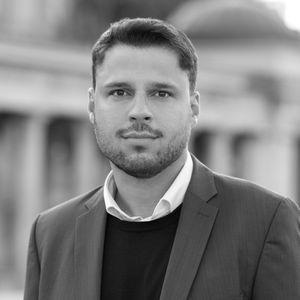
Rana Deep Islam is a management consultant for the public sector. Prior to his consulting career, he held positions in politics and civil society, including project manager at Stiftung Mercator, Bertelsmann Stiftung, and GIZ. Rana Deep Islam began his career at the European Parliament in Brussels and at Johns Hopkins University in Washington, D.C.
Partner
This event is organized by the Political Science and International Relations Department & European Studies at University of Delaware, and co-hosted by the Thomas Mann House Los Angeles.
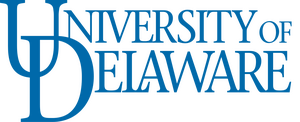
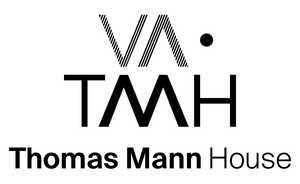
"What Is Good and What Is Evil” – Thomas Mann as a Political Activist
Leo Baeck Institute (15 W 16th St, New York, NY 10011)
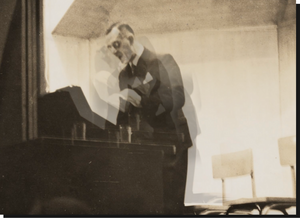
Sprache: Englisch
Info
Join the Leo Baeck Institute New York and the Thomas Mann House Los Angeles for a keynote lecture by German Studies scholar and literary critic Kai Sina on Thomas Mann’s political activism during his exile in the U.S., including his strong support for Zionism. The lecture will be followed by a conversation with writer and scholar Samantha Rose Hill, exploring how ideas and forms of political engagement crossed the Atlantic, how Mann’s activism can be understood within the U.S. literary discourse at the time, and how exiled writers spoke out in different ways. The conversation will be moderated by Benno Herz, Program Director at the Thomas Mann House Los Angeles.
For decades, Thomas Mann was rarely taken seriously as a political intellectual—when he wasn’t outright dismissed. This persistent misperception is rooted deeply in the (West) German postwar mentality and intellectual culture. It is time to revise it decisively. Mann was a public figure who, over many years, advocated for freedom and democracy—resolutely, independently, and often at personal risk.
At the center of Kai Sina’s recent book What Is Good and What Is Evil – Thomas Mann as a Political Activist (Propyläen Verlag, 2024) is not a systematic political theory, but a practice of public intervention that shaped Mann’s intellectual self-conception—a form of “social activism” he explicitly affirmed in 1930. In his lecture, Sina will show that Mann’s political activism did not begin in exile, but already in the Weimar Republic. Exemplary for this development is Mann's early and public opposition to antisemitism, which went hand in hand with a clear, outspoken endorsement of Zionism. Mann’s support for Zionism, far from being a gesture of abstract solidarity, was a deliberate and visible alignment with Jewish self-assertion at a moment of growing nationalist and antisemitic agitation. As early as 1921, he dismissed the rising right-wing ideology as “swastika nonsense”—a prescient response to the reactionary forces that would soon dominate Germany.
The lecture will be followed by a conversation and response with writer and scholar Samantha Rose Hill, author of Hannah Arendt (Reaktion Books, 2021).
This event is part of "Mann 2025: 150 Years of Thomas Mann.” Learn more about the 150th anniversary of Thomas Mann here.
Teilnehmer:innen
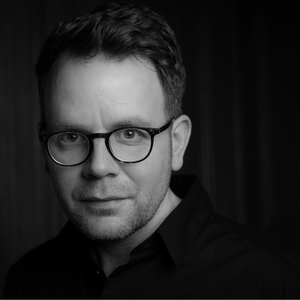
Kai Sina is a professor of modern German literature with a focus on transatlantic literary history at the University of Münster. He has been a Visiting Scholar at the University of Chicago and at Princeton University. He received the Fritz Behrens Foundation’s Science Prize, and in 2020 he was awarded a Lichtenberg Professorship by the Volkswagen Foundation. Together with Hans Rudolf Vaget, he is currently preparing an annotated edition of the essays Thomas Mann wrote during his exile. He recently published the books "What Is Good and What Is Evil” – Thomas Mann as a Political Activist and TransAtlantik: Hans Magnus Enzensberger, Gaston Salvatore, and Their Magazine for Western Germany.

Samantha Rose Hill is the author of the critically acclaimed book Hannah Arendt (2021) and the editor and translator of What Remains: The Collected Poems of Hannah Arendt (2024). She is associate faculty at the Brooklyn Institute for Social Research in New York City. Her work has appeared in the Los Angeles Review of Books, LitHub, OpenDemocracy, and the journals Public Seminar, Contemporary Political Theory, and Theory & Event.

Benno Herz is the Program Director at the Thomas Mann House Los Angeles. He is co-editor and co-author of the publications Thomas Mann’s Los Angeles: Stories from Exile 1940-1952 (2022) and Das Thomas Mann House – Politischer Denkort am Pazifik (2023). Herz is a lecturer at UCLA, teaching classes on German-speaking émigrés in Los Angeles, and covers related topics for international media outlets such as Frankfurter Allgemeine Zeitung.
Partner
This event is a collaboration between the Leo Baeck Institute New York and the Thomas Mann House. This event is part of Mann 2025: 150 years of Thomas Mann


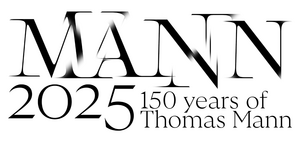
Post-War/Post-Wall: Journalism in Times of Polarization
Northern Arizona University Student Union
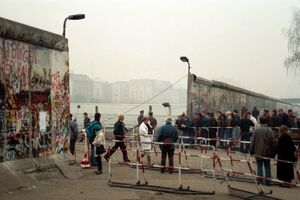
Language: English
Info
6.15 p.m. | Reception at Berlin Wall Exhibit, NAU Student Union
7 p.m. | Conversation in the Grand Canyon Room, NAU Student Union
Join 2025 Thomas Mann Fellow Susanne Beyer for a conversation on “Post-War/Post-Wall: Journalism in Times of Polarization” at Northern Arizona University, organized by the Martin-Springer Institute. The conversation will explore the challenges and responsibilities of journalism in societies marked by division and polarization. During her residency at the Thomas Mann House House, she explores the question of whether journalism needs to change in polarized times, whether there can be ways to report critically and empathetically at the same time, and whether journalism can initiate dialogues that bring people together rather than driving them apart. Beyer is a German author and journalist for the SPIEGEL.
Participants

Susanne Beyer studied German literature, history and journalism in Bamberg and Vienna. After her vocational training at Deutsche Journalistenschule (DJS), she initially worked as a culture editor at SPIEGEL, where she was deputy head of department. She was deputy editor-in-chief of SPIEGEL for four years, then worked as a journalist in SPIEGEL's Berlin office and now writes for the editorial team. Alongside her job, Susanne Beyer is currently training to become a mediator.
Partner
An event by the Martin-Springer-Institute at the Norther Arizona University, co-presented by the Thomas Mann House Los Angeles.
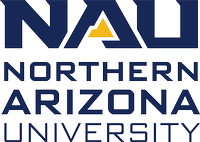

Hannah Arendt’s Lessons for Our Times – Über Exil und Solidarität
Thomas Mann House (1550 N San Remo Drive, CA 90272)

Sprache: Englisch ・ Teilnahme nur auf Einladung
Info
Arendt's oeuvre has inspired many to stand in solidarity against authoritarianism, racial or gender-based violence, climate change, and right-wing populism. Her highly acclaimed work is a common point of reference for reflecting on political challenges today. But what if a careful analysis of solidarity in her writing reveals a darker side to this intellectual legacy What if solidarity, as she conceives of it, was not oriented toward equality, freedom, or justice for all, but creates a barrier to intersectional coalition building?
David D. Kim’s newly published book Arendt's Solidarity: Anti-Semitism and Racism in the Atlantic World (Stanford University Press, 2024) examines Arendt's lifelong struggle with ‘solidarity’—a deceptively straightforward, yet complex concept. Following the arc of her forced migration across the Atlantic, Kim looks at this conceptual conundrum in relation to every major concern of hers: Christian neighborly love, friendship, Jewish assimilation, Zionism, National Socialism, the American republic, Black Power, revolution, violence, and the human world. In dialogue with dissenting voices such as Thomas Mann, Gershom Scholem, Jean-Paul Sartre, James Baldwin, among others, and drawing from Arendt's publications, unpublished documents, private letters, and other archival material, Kim offers a full-scale reinterpretation of her oeuvre.
Participants

David D. Kim is Professor in the Department of European Languages and Transcultural Studies at UCLA, Associate Vice Provost of the International Institute, and the Community Engagement Advisor for the Division of Humanities at UCLA.

Why Read Thomas Mann in the 21st Century?
Thomas Mann House (1550 N San Remo Drive, CA 90272)

Language: English ・ By invitation only
Info
*Diese Veranstaltung findet in englischer Sprache statt*
In her forthcoming book The Magician’s Mother: A Story of Coffee, Race, and German Culture, Veronika Fuechtner rethinks Mann’s family history and cultural milieu through a transnational and postcolonial lens, focusing on Thomas Mann’s Brazilian mother Júlia da Silva Bruhns. Renowned writer and critic Morten Høi Jensen’s forthcoming book The Master of Contradictions – Thomas Mann and the Making of “The Magic Mountain”, explores the philosophical and artistic tensions that shaped one of Mann’s most celebrated works – The Magic Mountain. Tobias Boes, author of the acclaimed 2019 bookThomas Mann’s War: Literature, Politics, and the World Republic of Letters, returns with A Reader’s Guide to Thomas Mann’s “Doctor Faustus”, a powerful companion to Mann’s ambitious postwar novel, which Mann completed during his exile in Los Angeles. Boes’ upcoming reader is supposed to reintroduce the canonical novel to a new readership in the U.S., also focusing on the novel’s political urgency. These authors from the fields of literary studies, history, and cultural criticism will delve into Mann’s political engagement, his literary innovations, and the questions his work continues to pose in our time.
In a conversation moderated by 2025 Thomas Mann Fellow and journalist Sandra Kegel, the panel will discuss the question: Why should we read Thomas Mann today? What can his literature and political activism offer contemporary readers? How does Mann speak to a new generation—grappling with crises of democracy, culture, and identity? A Join us for an evening on Mann’s continued relevance, contradictions, and ongoing resonance in the twenty-first century.
Teilnehmer:innen

Tobias Boes is Professor of German and Chair of the Department of German, Slavic, and Eurasian Studies at the University of Notre Dame, where he teaches courses on twentieth and twenty-first century German culture and on European Studies. He is the author of two books on Thomas Mann: Thomas Mann’s War (Cornell University Press, 2019), which won the GSA/DAAD best book award and was translated into both German and Russian, and the recently-published A Reader’s Guide to Thomas Mann’s “Doctor Faustus” (Camden House, 2025). Both titles are available as free eBooks thanks to generous grants from the recently defunded National Endowment for the Humanities, from Notre Dame’s Navari Family Center for Humanities and the Public Good, and from the Thomas Mann House in Pacific Palisades. He is currently putting together a collected edition of Mann’s anti-Nazi speeches and writings, and also working on a new book project tentatively titled Affirming Flames: Cultural and Intellectual Defenses of Democracy during the Fascist 1930s.

Veronika Fuechtner is Chair of Comparative Literature and Associate Professor of German Studies at Dartmouth. She also teaches in Jewish Studies, and Women's, Gender and Sexuality Studies. In addition, she occasionally has held an appointment as Adjunct Associate Professor in the Department of Medical Education at the Geisel School of Medicine. She is the author of Berlin Psychoanalytic (University of California Press, 2011) and the co-editor of Imagining Germany, Imagining Asia (Camden House, 2013) and A Global History of Sexual Science 1880-1960 (University of California Press, 2017). She recently completed a monograph on Thomas and Heinrich Mann's Brazilian mother, Julia Mann, and the Mann family construction of race and “Germanness." And she is the editor of the forthcoming Norton critical edition of Susan Bernofsky’s translation of Thomas Mann’s The Magic Mountain. Her research interests include the history of psychoanalysis and sexology, the relationship between science and culture, discourses on race and ethnicity, German-language modernism, contemporary culture, German-language film, and global cultural and scientific histories. She has received research grants from the American Council of Learned Societies, The American Academy in Berlin, the American Psychoanalytic Association, the Deutsche Schillergesellschaft, the Max Planck Institute for the History of Science, the National Endowment for the Humanities and the Social Sciences Research Council. She is serving on the editorial board of PMLA and she chairs the conduct and anti-harassment committee of the GSA.
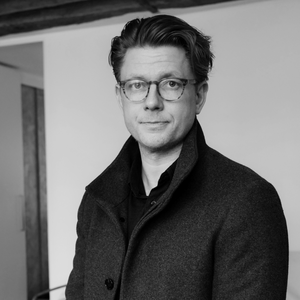
Morten Høi Jensen is a Danish-American writer and critic and the author of A Difficult Death: The Life and Work of Jens Peter Jacobsen(2017) and The Master of Contradictions: Thomas Mann and the Making of The Magic Mountain (2025). He has contributed to Liberties, the New York Review of Books, Washington Post, the Wall Street Journal, and Commonweal.
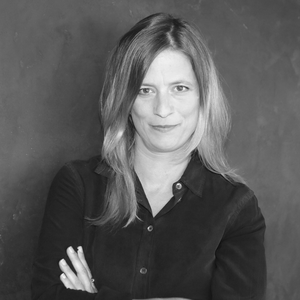
Sandra Kegel studied literature, theater, film and media studies in Aix-en-Provence, Vienna and Frankfurt. She has been an editor at the Frankfurter Allgemeine Zeitung since 1999. She worked in media and literature departments for many years and has been head of the FAZfeatures section since 2019. She also works as a juror and presenter and is a regular critic on the literary program “Buchzeit” (3sat). In 2005, she was awarded the Ravensburg Media Prize. During her 2025 fellowship at the Thomas Mann House, Sandra Kegel is investigating the extent to which the decline of the (local) press is promoting populism and mistrust in democratic structures and what lessons can be learned from the findings for the German newspaper landscape. She will also examine the use of AI in media companies and its implications for the journalistic ecosystem.
Partner
This event is part of Mann 2025: 150 years of Thomas Mann





